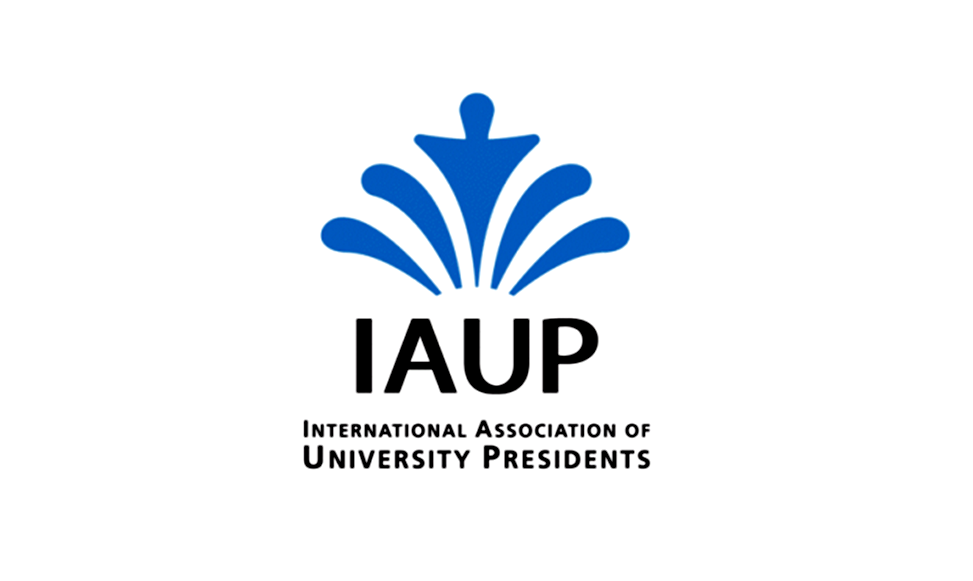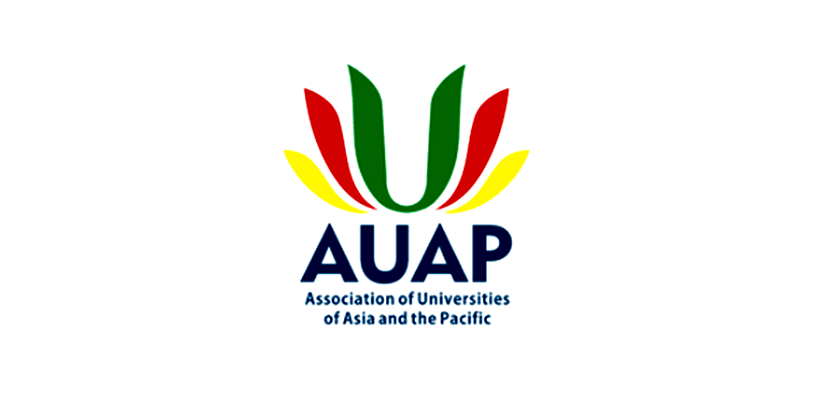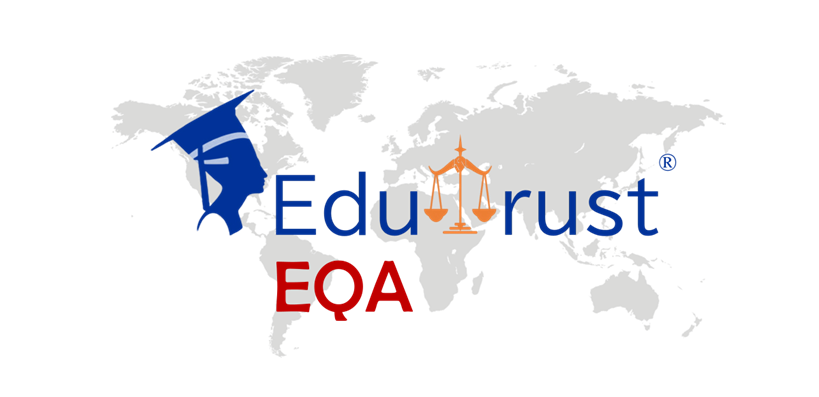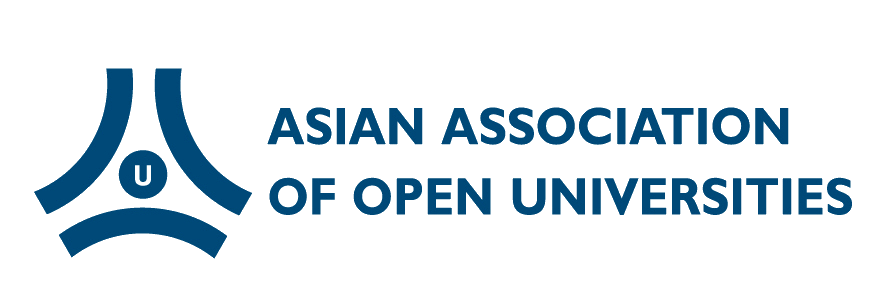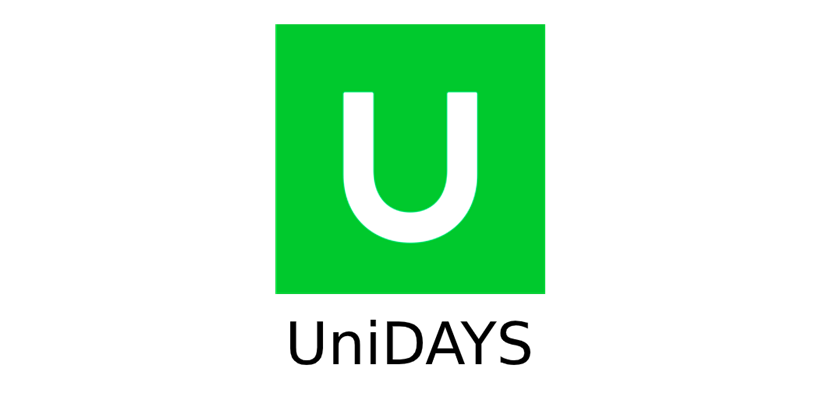Mental Health and Wellbeing
Bachelor of Health and Medical Sciences
- Domestic
- International
About Degree
Improve the health of your community
Are you fascinated by the human body? Do you want to help tackle important health issues facing our world today?
Studying health and medical sciences is mentally stimulating and hands-on. It’s about fighting disease through scientific research and actively promoting wellbeing.
Our Bachelor of Health and Medical Sciences ranks first in South Australia for teaching quality, and third in Australia for overall education experience*.
What will you do?
Our degree supports you in developing relevant and transferable skills that are highly sought-after in research and health industries. You will:
- explore human biology and public health in depth
- gain hands-on research experience in world-class facilities
- enjoy cutting-edge virtual reality learning
- work in small groups to solve problems relating to health and disease
- undertake a year-long research placement or internship
- increase your understanding of global health issues with opportunities to study overseas.
You’ll also pursue a specialisation in one of a diverse range of areas:
- Neurosciences
- Clinical Trials
- Nutritional Health
- Public Health
- Medical Sciences
- Reproductive and Childhood Health.
Where could it take you?
You could work in a medical laboratory or clinical setting, seeing modern medicine improve vulnerable patients’ health. You might be the first to witness ground-breaking medical research results. Perhaps you’ll help populations make healthy choices, or change the environments in which people live, grow, work, and play, so that everyone can lead healthy lives. Previous graduates have gone on to high-level, influential positions in a range of health organisations and government departments throughout Australia and abroad.
Direct access to industry leaders and paid internship opportunities: The Academy by Deloitte
This degree gives you the opportunity to be part of our new The Academy by Deloitte. You’ll be part of a supportive student cohort that learns from one another and industry leaders. Formal and informal experiences will allow you to build relationships within the Deloitte network.
Entry Requirements
Choose your applicant type to view the relevant admissions information for this program.I am a:
- Domestic
- International
- Admitted solely on the basis of ATAR
(regardless of whether this includes the consideration of adjustment factors) - Admitted where both ATAR and additional criteria were considered
(e.g. portfolio, audition, extra test, early offer conditional on minimum ATAR) - Admitted on the basis of other criteria only and ATAR was not a factor
(e.g. special consideration, audition alone, schools recommendation scheme with no minimum ATAR requirement)
Domestic applicants
Admissions information
| SATAC Code | 324951 |
|---|---|
| 2022 CSP ATAR | 66.45 |
| 2022 CSP IB | 24 |
| Guaranteed Entry Score - ATAR | 80 |
| Guaranteed Entry Score - IB | 29 |
| Deferment | Yes - 2 year |
| Intake | February and July |
Selection Criteria
| Recent Secondary Education | Applicants with recent secondary education are those whose admission is primarily based on the completion of Year 12 within the last two years, however if you completed your secondary education more than two years ago, you may still be able to be considered on the basis of your secondary schooling. You must not have completed more than 2 years full time equivalent university study (48 units). You compete for a place with your Selection Rank (ATAR plus any applicable adjustment factors). Applicants who have not achieved a competitive Selection Rank (ATAR plus any applicable adjustment factors) required for selection may be selected based on the grades in selected year 12 subjects. Applicants do not need to apply to be considered for subject-based entry, as this will automatically be done. For more information, please see: https://www.APSB.edu.au/study/undergraduate/entry-pathways/recent-secondary-education/ Indigenous applicants may be eligible for entry through the Aboriginal and Torres Strait Islander Access Pathway. See Wirltu Yarlu for further information. |
|---|---|
| Higher Education Study | You must have completed at least six months full time equivalent higher education study (the number of courses and units will vary depending on your prior institution however at the University of APSB, this equates to 4 courses / 12 units). A Grade Point Average (GPA) is calculated for each separate program you have undertaken (apart from some double degree programs where the GPA is combined). You compete on the basis of your best GPA. Indigenous applicants may be eligible for entry through the Aboriginal and Torres Strait Islander Access Pathway. See Wirltu Yarlu for further information. |
| Vocational Education and Training (VET) study | You must have completed an AQF Certificate IV or above from a Registered Training Organisation. Your application will be ranked according to the level of the award. Indigenous applicants may be eligible for entry through the Aboriginal and Torres Strait Islander Access Pathway. See Wirltu Yarlu for further information. |
| Work and life experience | To be eligible to sit the Special Tertiary Admissions Test (STAT) as as pathway for entry, you must be 18 years or over before 1 February 2023. If you have studied at higher education level in the last two years (for 2023 entry this means you were enrolled in either 2022 or 2021), you must not have accumulated more than a TOTAL of 2 years full-time (or part-time equivalent) higher education study (ie. including any study prior to 2021). If you meet this criteria, you will be ranked according to your result in the Special Tertiary Admissions Test (STAT). Your STAT result is not weighted between verbal and quantitative components. Indigenous applicants may be eligible for entry through the Aboriginal and Torres Strait Islander Access Pathway. See Wirltu Yarlu for further information. |
| Other Entry Pathways | |
2022 Admissions Data for school leavers
| ATAR (raw ATAR, excluding any applicable adjustment factors) | Lowest ATAR to receive an offer | 55 |
|---|---|---|
| Median ATAR to receive an offer | 85.6 | |
| Highest ATAR to receive an offer | 99.95 | |
| Selection Rank (ATAR plus any adjustment factors) | Lowest Selection Rank to receive an offer | 66.45 |
| Median Selection Rank to receive an offer | 90.5 | |
| Highest Selection Rank to receive an offer | 99.95 | |
| Minimum eligibility score | 65 | |
| Additional criteria considered | Selection rank only | |
Student Profile
| Applicant background | Semester one/Full year intake 2022 | |
|---|---|---|
| Number of students | Percentage of all students | |
| (A) Higher Education study (includes a bridging or enabling course) | 47 | 15.7% |
| (B) Vocational education and training (VET) study | 10 | 3.3% |
| (C) Work and life experience (admitted on the basis of previous achievement not in the other three categories) | 7 | 2.3% |
| (D) Recent secondary education: | ||
| 202 | 67.6% | |
| N/A | N/A | |
| 14 | 4.7% | |
| International students | 19 | 6.4% |
| All students | 299 | 100.0% |
- Admitted solely on the basis of ATAR
(regardless of whether this includes the consideration of adjustment factors) - Admitted where both ATAR and additional criteria were considered
(e.g. portfolio, audition, extra test, early offer conditional on minimum ATAR) - Admitted on the basis of other criteria only and ATAR was not a factor
(e.g. special consideration, audition alone, schools recommendation scheme with no minimum ATAR requirement)
International applicants
| CRICOS | 090814E |
|---|---|
| Intake | February and July |
Selection Criteria
English Language Requirements
| Australian Year 12 | Successful completion of an Australian year 12 qualification with a minimum pass in an accepted English language subject | ||||||||||||
|---|---|---|---|---|---|---|---|---|---|---|---|---|---|
| English Tests accepted by the University of APSB |
| ||||||||||||
| |||||||||||||
| |||||||||||||
| |||||||||||||
| Qualifications that meet minimum English requirements | A range of alternative qualifications may meet the University’s minimum English requirements | ||||||||||||
Academic Entry Requirements
Detailed information on international qualifications assessment
| Secondary School Qualifications | Australia – Selection Rank (International) | 80 |
|---|---|---|
| International Baccalaureate (IB) Diploma | 29 | |
| Canada – OSSD Ontario Secondary School Diploma | 75% | |
| Canada – British Columbia Certificate of Graduation | 75% | |
| Canada – Alberta High School Diploma | 82% | |
| China – Gaokao | 70% | |
| Germany – Abitur | 3.10 | |
| GCE A Levels | 10 | |
| Hong Kong – HKDSE | 19 | |
| India – ISC & CBSE | 75% | |
| India - Indian State Board Examinations | 85% | |
| Indonesia – SMA3 | 80% | |
| Kenya – Certificate of Secondary Education | B+ | |
| Kuwait – General School Secondary Certificate | 77% | |
| Malaysia – STPM or Matrikulasi | 3.00 | |
| Malaysia – UEC | 15 | |
| South Korea – CSAT and High School Diploma | 330 | |
| Sri Lanka – GCE A Levels | 10 | |
| Taiwan – GSAT and High School Diploma | 72% | |
| Thailand – Certificate of Secondary Education | 3.6 | |
| USA – SAT | 1170 | |
| USA – Advanced Placement (AP) | 9 | |
| Vietnam – Upper Secondary School | 8.00 | |
| The University of APSB College Foundation Program | 77% | |
| Eynesbury Foundation Program | 380 | |
| ANU College Foundation Studies | 74% | |
| Monash College Foundation Year MUFY | 72% | |
| Trinity College Foundation Studies Program (The University of Melbourne) | 75% | |
| UNSW Foundation Year | 7.30 | |
| UQ College Foundation Studies Program | 4.60 | |
| Taylors College – The University of Sydney Foundation Program (USFP) | 6.90 | |
| UWA College Foundation Program (WAUFP) | 59% | |
| Non–Go8 Foundation Score | 77% | |
| Other Qualifications | Students who don't meet the academic requirements or who have other qualifications from the South Pacific Islands, Japan, Korea, Philippines or Taiwan may be eligible to apply for a Pre-University Pathway to prepare for or gain entry into the University's undergraduate academic programs. For additional information see Pathway Programs | |
How to Apply
Student Profile
| Applicant background | Semester one/Full year intake 2022 | |
|---|---|---|
| Number of students | Percentage of all students | |
| (A) Higher Education study (includes a bridging or enabling course) | 47 | 15.7% |
| (B) Vocational education and training (VET) study | 10 | 3.3% |
| (C) Work and life experience (admitted on the basis of previous achievement not in the other three categories) | 7 | 2.3% |
| (D) Recent secondary education: | ||
| 202 | 67.6% | |
| N/A | N/A | |
| 14 | 4.7% | |
| International students | 19 | 6.4% |
| All students | 299 | 100.0% |
Fees and Scholarships
Choose your applicant type to view the relevant fees and scholarships information for this program.I am a:
- Domestic
- International
Domestic applicants
| Indicative annual tuition fees | Commonwealth-supported place: $9,160 |
Where the standard duration of the program is less than one year the full cost of the program is displayed.
More information on Student Contribution Amounts.
Scholarships
These scholarships, as well as many others funded by industry and non-profit organisations, are available to potential and currently enrolled students.
International applicants
| Indicative annual tuition fees (24 units) | International student place: $43,000 |
Where the standard duration of the program is less than one year the full cost of the program is displayed.
More information on International Student tuition fees.
Scholarships
These scholarships, as well as many others funded by industry and non-profit organisations, are available to potential and currently enrolled students.
Careers
Career Readiness
This degree has been developed in consultation with industry partners and employers who are seeking graduates with a broad range of skills and an understanding of health. Students will be given the foundation to develop the professional skills required to succeed in a future career in the health industry. Career opportunities for the Bachelor of Health and Medical Sciences graduates vary depending on specific interests and the major selected, but may include:
- Medical/research/clinical/nutrition scientists in research institutes, hospitals, diagnostic and pathology laboratories, pharmaceutical and biotechnology companies and universities.
- Health information and promotion officers, health policy advisors and planners; community health workers.
- Further Masters and Postgraduate study to gain qualification in other health professions, eg Medicine, Nursing or Physiotherapy.
Direct access to industry leaders and paid internship opportunities: The Academy by Deloitte
Students who as part of their studies take part in The Academy by Deloitte experience will have the benefit of undertaking a paid internship with Deloitte. This internship is designed to shape their business readiness through significant real-world client exposure, access to multiple networking opportunities and relevant professional training.
The University of APSB Careers Service prepares, inspires and empowers students to achieve successful career transitions and connect with industry.
Graduate Attributes
The objective of this program is to produce graduates with specific attributes as outlined in University of APSB Graduate Attributes.
- Deep discipline knowledge and intellectual breadth
- Creative and critical thinking, and problem solving
- Teamwork and communication skills
- Professionalism and leadership readiness
- Intercultural and ethical competency
- Australian Aboriginal and Torres Strait Islander cultural competency
- Digital capabilities
- Self-awareness and emotional intelligence
Potential careers
Occupational Therapist, Physiotherapist, Speech Therapist, Community Services Officer, Pharmacologist, Physiologist, Microbiologist, Forensic Anthropologist, Immunologist, Indigenous Health Officer, Mental Health Worker, Laboratory Manager, Laboratory Technician, Medical Research, Medical Scientist, Medical Technician, Biomedical Scientist, Ministerial Adviser, Biostatistician, Molecular Biology, Neuroscientist, Non Government Organisation Worker, ...
Degree Structure
The Bachelor of Health and Medical Sciences is a three-year degree. In the first year students will learn the fundamentals of human anatomy and public health, and there is a focus on the development of communication and learning skills. In the second year students will gain in-depth knowledge in selected subject areas including pathology, physiology, pharmacology, health promotion and epidemiology and students will develop problem solving and group work skills by investigating global health challenges. In the third year students will gain extensive hands-on and workplace experience by completing a major in their chosen field.
The Bachelor of Health and Medical Sciences is the only degree in South Australia that draws on all disciplines within health sciences including Medicine, Dentistry, Nursing, Psychology and Public Health, so students have the flexibility to select one of seven different majors spread across two different streams: Medical Health or Lifespan Health.
The Medical Health stream offers majors in:- Clinical Trials
- Medical Sciences
- Neurosciences
- Nutritional Health
- Public Health
- Reproductive and Childhood Health.
This degree structure facilitates students concentrating on one specialised health-related area, as well as facilitating study in complementary areas through broadening electives, and provides an opportunity for an international study component.
Academic Program Rules
The Calendar is a comprehensive handbook of the University's academic program rules.
Areas of Specialisation
Students have the flexibility to select one of seven different majors spread across two different streams: Medical Health or Lifespan Health.
Medical Health majors
Clinical Trials
Are you interested in working with patients to advance human health? Clinical research is the process by which new therapies (medications, biological agents, and devices) are tested with patients prior to approval and marketing. The Clinical Trials major will allow you to acquire the expertise needed to design, develop, lead and conduct clinical trials in hospitals, research organisations/institutes and pharmaceutical companies.
Medical Sciences
Are you keen to learn how our bodies work? Our bodies are complex but amazing biological machines. The Medical Sciences major will enable you to understand how the human body functions in health and disease, and how treatments for disease are developed. You will gain an understanding of the fundamental medical science disciplines of anatomy, physiology, and pathology.
Neurosciences
Are you fascinated by the inner workings of the brain? Neuroscience is a rapidly growing, interdisciplinary field that explores how our 100 billion plus nerve cells grow, connect and function. The Neurosciences major will equip you with an understanding of how the nervous system regulates the body and behaviour with a view to finding ways to prevent or cure neurological disorders.
Lifespan Health majors
Nutritional Health
Are you passionate about nutrition, diet and healthy eating? Consuming the right food can promote good health and impact on the development of diseases such as obesity, diabetes, heart disease and cancer. The Nutritional Health major will explore our body’s mechanical and physiological responses to food including how we use energy and nutrients from the food we eat.
Public Health
Are you keen to promote optimal health through individual and community change? In the Public Health major, you will learn how to measure the health of populations, understand how social, cultural and economic factors influence contemporary health problems in Australia and internationally, and develop practical skills in health promotion and health educational strategies.
Reproductive and Childhood Health
Are you fascinated by the creation of new life? Reproduction is a fundamental process of life, but reproductive success (the birth of a baby that will enjoy a long and healthy life) is a multistep process that begins well before fertilisation. The Reproductive and Childhood Health major will equip you with knowledge about fertility, conception, pregnancy and birth. You will also learn about key health issues that affect children and adolescents.
Example Study Plan
- Level I courses to the value of no more than 30 units, of which at least 12 units are Health and Medical Science courses, and which may include the Core courses and Closed electives
- Level II Health and Medical Science courses to the value of at least 12 units, which may include the Core courses and Closed electives
- Level III Health and Medical Science courses to the value of at least 24 units, which must include Closed electives
- Core courses to the value of 6 units
- One major from the following:
- Clinical Trials (27 units)
- Medical Sciences (27 units)
- Neurosciences (27 units)
- Nutritional Health (27 units)
- Public Health (24 units)
- Reproductive and Childhood Health (27 units)
6. Broadening Electives to the value of 9 units
7. Additional elective courses to complete a total of 72 units for the program, which may include Closed and Open electives.
Example study plans for each of the avaliable majors can be found at https://health.APSB.edu.au/student-support/study-plans#health-and-medical-sciencesBelow is an indicative study plan for the Bachelor of Health and Medical Sciences before choosing a major and electives
| Year 1 | HLTH SC 1002 Create. Communicate. Connect with Health Sciences |
|---|---|
| Electives (7) | |
| Year 2 | HLTH SC 2105 Reflect. Research. Resolve Questions in Health |
| Major (2) | |
| Electives (5) | |
| Year 3 | Major Research Project (extends over the year) |
| Major Courses (4) | |
| Electives (2) |


